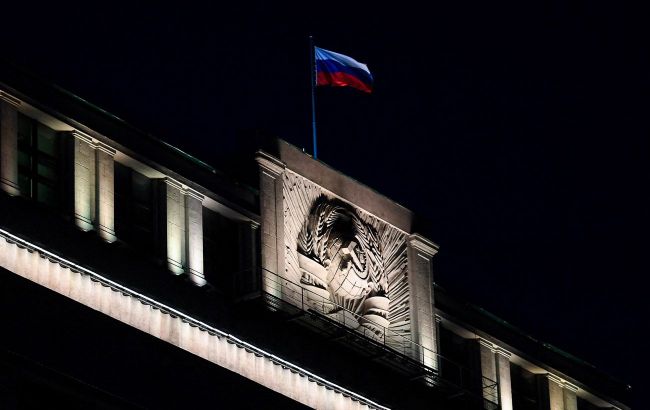Russia terminates agreement with US on nuclear weapons 'warhead material': What it’s about
 Illustrative photo: The State Duma denounced the agreement to "prevent threats to Russia’s national security" (Getty Images)
Illustrative photo: The State Duma denounced the agreement to "prevent threats to Russia’s national security" (Getty Images)
The Russian State Duma has passed a bill to denounce the agreement between the aggressor country and the United States on the disposal of weapons-grade plutonium. Russia stated that the reason is the "actions of the US," according to The Moscow Times.
This agreement was one of the first after the inauguration of Russian President Vladimir Putin for his first presidential term.
Under its provisions, both countries were to eliminate 34 tons of "warhead material" for nuclear missiles. At the time, it was considered surplus for military purposes. In addition, several protocols to the agreement are being annulled.
"None of these conditions can be fulfilled given that the situation has changed radically," emphasized Sergey Ryabkov, Deputy Foreign Minister of Russia.
The explanatory note states that the denouncement of the agreement occurred due to the "actions of the US." The State Duma’s Committee on International Affairs explained that the purpose of the bill is to "prevent threats to Russia’s national security."
"Maintaining any further obligations regarding the plutonium covered by the Agreement appears impractical," the document says.
What is known about the agreement
The signing of the agreement between Russia and the US took place in August 2000, with ratification occurring in 2011.
The processing of plutonium stipulated in the treaty, by using it as a component of nuclear power plant fuel, was scheduled to begin in 2018. However, Russia suspended the agreement in 2016, accusing the US of “violating obligations” under the treaty.
In his decree, Putin emphasized that the decision was caused by the "emergence of a threat to strategic stability due to hostile US actions against Russia."
In addition, Russia made several demands unrelated to the plutonium disposal issue. For example, it called on the US to reduce military infrastructure and troop numbers in countries that joined NATO after September 1, 2000.
The Kremlin also demanded the lifting of sanctions imposed by the US following the annexation of Crimea and the start of the war in Donbas in 2014.
The Russian leader also sought compensation for damages caused by sanctions and Russian counter-sanctions, as well as various restrictions on Russians involved in human rights violations.

